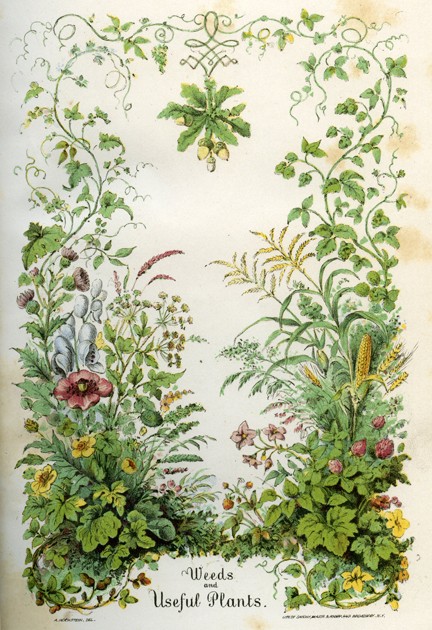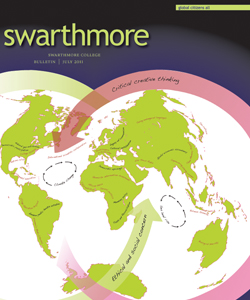150 Years Ago:
“Honest, Useful Men and Women”
 By summer 1861, the founders of the yet unnamed educational institution that was to become Swarthmore College were spreading their idea though the pages of the Friends Intelligencer and at Quaker meetings throughout the mid-Atlantic. The response was favorable, but some Quakers had doubts about whether advanced learning was compatible with Quaker plainness.
By summer 1861, the founders of the yet unnamed educational institution that was to become Swarthmore College were spreading their idea though the pages of the Friends Intelligencer and at Quaker meetings throughout the mid-Atlantic. The response was favorable, but some Quakers had doubts about whether advanced learning was compatible with Quaker plainness.
One such person asked in a letter to the Intelligencer: “[W]hat if we do not give the world chemists, philanthropists, astronomers, or poets? If we give honest, useful men and women, do we not do more?”
The editor of the Intelligencer responded that the writer could not think that “chemists, astronomers, statesmen, and poets cannot also be useful and honest men and women!”
The Society of Friends, the editor continued, had room for chemists and astronomers as well as farmers and shopkeepers. It was the duty of Friends to use and cultivate “in their proper order all the faculties bestowed on us by a benevolent Creator….” (Given the contemporary emphasis at Swarthmore on a green campus, it is perhaps significant how often botanical metaphors crop up in the writings of the College founders.) The editorial ends with, “Let us, in the education of the young, imitate the enlightened farmer or gardener, who gives to each plant the soil, the aspect, and all the needful care required by each, and then looks to the Great Source of Good, for the sun, the dew, the early and later rain, to develop all into beauty, usefulness and harmony.”
This is the second of an occasional series leading up to the 2014 sesquicentennial of Swarthmore’s chartering that will follow the work of our Quaker founders as they created the College.
 Email This Page
Email This Page